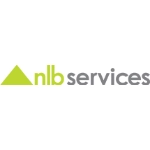© 2025 Next Level Business Services Inc. All Rights Reserved.
How to Answer Behavioral Interview Questions
By NLB Services
Behavioral questions are an integral part of job interviews, giving employers an insight into prospective candidates’ working styles and prior job experiences. These types of questions are part of a standardized evaluation process used by organizations to evaluate and compare candidates interviewing for the same position. Relying on hypothetical questions confers a limited understanding of one’s personality, instead, recruiters depend on the personal experiences of candidates to assess their behavioral patterns across different professional contexts in the past to predict their future behavior in similar situations. We will go in-depth to understand what behavioral questions are like, and how to answer those behavioral questions effectively in order to demonstrate your expertise.
Understanding the purpose of behavioral questions
Your resume may boast a long list of skills showcasing your achievements, but it won’t take you too far if you’re not able to articulate to your employer how you have implemented those skills in real life and the results they yielded. This is primarily why employers rely on behavioral questions to elicit detailed responses from candidates to assess their past behavior in order to have a broad understanding of their decision-making ability, adaptability, resilience, analytical and creative thinking, and other relevant interpersonal skills. Clearly, it’s one thing to claim that you possess a certain set of skills, but it’s definitely more compelling to back it up with personal anecdotes and specific examples to actually show you have dealt with relevant situations, building your credibility. To give our readers a better understanding of what behavioral questions may look like, we have compiled a list of some of the most common ones asked during interviews.
- How do you handle professional setbacks?
- When was the last time you failed at achieving a goal you worked hard for, and how did you deal with the setback?
- Have you ever worked against a company’s policies for a client’s requirement?
- Give me an example of a time when you had to handle a dispute between two colleagues?
- Tell me about a time when you had to convince your manager/boss to see things your way.
Identify the skills and qualities the employer is looking for
One easy way to tackle behavioral questions is by thoroughly analyzing the job descriptions to understand the skills and qualities the employer is seeking and incorporating those in your answers. A common mistake most job seekers make is merely skimming through a job description whilst missing out on important details that could significantly influence their interview outcome. This is why we advise our readers to thoroughly read it and compile a list of all the soft skills and hard skills employers are looking for. But, remember not every information will be out there in the description, some may be explicit while some may be implicit, so don’t hold back from reading between the lines. You can even go one step further and research the company’s website and social media handles to make note of any other relevant qualities you think may be important. Basically, look for any recurring themes across their website, social media platforms, and job openings they have posted. As a general rule focus on three main things, the skills and key competencies a company values, the job experience they are looking for in a candidate, and lastly the company’s ethos and mission. Be as meticulous as you can be whilst doing this research as it will lay the groundwork for any further preparation you do.
Read our full guide – How to prepare for a job interview
Prepare concrete examples of your past experiences
Once you have all the aforementioned information in place you should align it with your own past experiences, responsibilities, and achievements to formulate a targeted response to your employer’s behavioral questions. Using concrete examples and anecdotes as a testament to the skills the employer values is sure to give you a considerable advantage over other candidates. As along with building your credibility it also gives the employer more context to better assess your suitability for the job, providing insight into the situations you have dealt with, your contributions to manage those situations, and the outcome or benefit of your efforts.
For instance, if you are asked to describe a time when you had to work with a difficult colleague, provide details of how you came up with a solution to manage the situation. Your response could look something like, “It was hard at first, but when I took the time to know more about their personal life, it turned out they had recently lost a family member, and once I was able to understand them, we got along pretty well and eventually became the most successful marketing duo in the firm.” Now imagine saying something like, “I somehow managed to work with them and achieve the set targets for our team .” Clearly, there’s a striking difference between both the responses, with the former being more impactful in showcasing your skills and your zeal to overcome problems. The key here is to give 3-4 such concrete examples that support the range of skills you possess, which an organization can benefit from.
Use the STAR method to structure your responses
We have given a brief overview of the STAR method with an example to help you formulate your responses to these behavioral questions.
Situation
Begin by describing the specific circumstances or situation you were in. Give a brief history and any other pertinent information. Be succinct, yet offer the interviewer enough details to fully understand the context.
Example– In my previous job, I was entrusted with managing a software development project for a prominent client.
Task
Describe the task or objective you had to achieve. You should also delve into the details of any challenges you encountered. But, avoid overindulging in any additional information at this stage and strictly stick to information that’s in line with the question asked.
Example– During the critical implementation phase, our lead developer unexpectedly resigned, leaving us without a key technical expert and jeopardizing project timelines.
Action
Outline your efforts to deal with the issue at hand, highlighting your core competencies and any other relevant skills and experiences that came in handy at that time. Be descriptive enough giving sufficient information to exhibit your knowledge and expertise.
Example– I swiftly assessed the situation, identified a team member with relevant technical skills, and engaged in open communication. Together, we reassigned responsibilities, allowing them to step up as the lead developer.
Results
Lastly, emphasize the results you were able to achieve or any progress you made with the situation. Whenever feasible, provide precise numbers or metrics to demonstrate your contributions.
Example- Through our coordinated efforts, we successfully delivered the project on time, exceeding client expectations. The software received positive feedback, resulting in increased user adoption and client satisfaction. Our agile problem-solving approach was recognized within the organization and contributed to our team’s reputation for excellence in delivering complex technical projects.
Practice your responses
Since behavioral questions call for detailed yet structured answers, one needs to be able to articulate themselves well. Many times, job candidates either get nervous or end up deviating from the question, providing information that is irrelevant. You can alleviate such issues by practicing your responses with friends or mentors and receiving feedback from them to further refine and tweak your answers. As you practice, you get comfortable with the format of these questions, along with the structure and flow of your own responses. Interviews are typically stressful, so aim to prepare beforehand to combat that anxiety to remain calm and confident on the day of the interview.
Before you begin practicing, do your research and make a list of frequently asked behavioral questions. Follow it up with structuring your responses using the STAR method, writing down your responses, and timing yourself as you practice with someone. By recording your practice sessions, you can better evaluate areas for improvement. However, many candidates end up memorizing their answers as they practice. We strongly advise our readers against this as you can never be sure of the questions that may be asked on the day of the interview. After all, the whole point of practicing is to get comfortable with the entire process and be as natural and authentic as you can.
Remain calm and confident during the interview
We know it’s not easy to calm your job interview nerves but it’s essential in order to perform well to showcase your best professional self. To cultivate a sense of peace before the interview, indulge in some motivational self-talk, looking in the mirror and reaffirming positive statements. You can also meditate, visualizing how you’d like for the interview to go. Be sure to get ample sleep the night before to appear with a rested and clear mind. Just preparing in advance is not enough, you have to learn ways to keep your mind centered so as to think clearly and confidently during the interview.
Conclusion
Many times, prospective job candidates struggle with one question- How to answer behavioral interview questions effectively? Since behavioral questions are very personal, there’s no guide or expert advice on what to say. Moreover, there are no right or wrong answers when it comes to these questions, you can only learn certain methods to structure your responses in a way that highlights your true potential. The responsibility hones on you to understand what the employer is looking for and how well you can align your experiences with those required skills when articulating yourself. With the tips we’ve provided, you can streamline your preparation process, putting your best foot forward.
Talent Solutions








